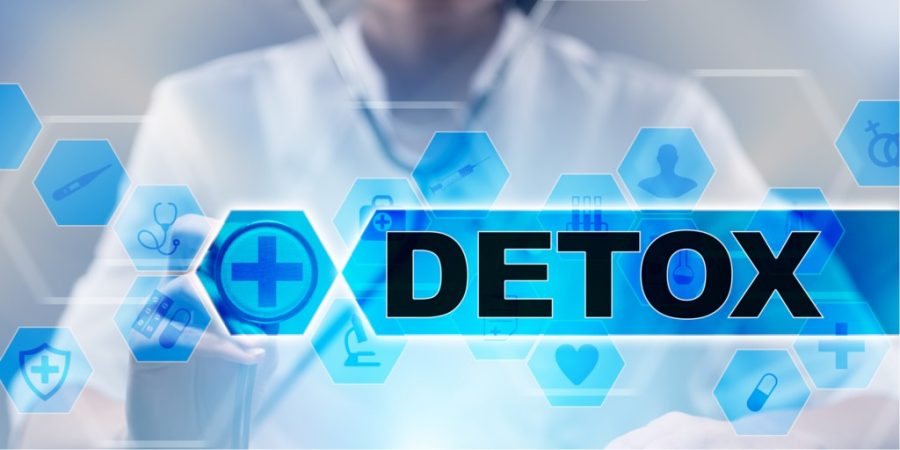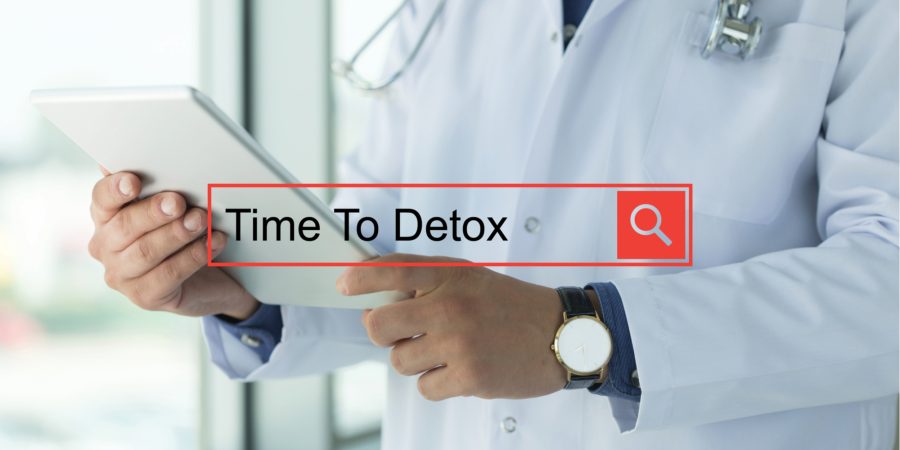
Coming to the decision to quit drugs and alcohol is life-changing. And you should feel proud for taking that first step, but it’s important to make sure you’re laying the foundation for a successful recovery.
When you first decide to stop drinking or using, you may feel tempted to quit “cold turkey” at home. But medical detox can offer a much safer, more effective alternative. In fact, let’s delve into what makes medical detox the cornerstone of successful addiction treatment.
Table of Contents
What Is Medical Detox?

Before we explain its unique benefits to veterans, let’s cover what our medical detoxification program actually does.
First and foremost, we take in veterans who have recently decided to quit drugs or alcohol. This is often a time of crisis; people may feel nervous or uncertain about their decision to quit. By providing them with a safe, sober environment, we can greatly reduce the risk of relapse and prepare them for subsequent care at a drug and alcohol addiction center.
Because veterans are more likely to suffer from post-traumatic stress disorder (PTSD), they are especially vulnerable to relapse in the early stages of recovery. This co-occurring mental health issue can lead to increased distress in early recovery, which can lead veterans to drink or use to cope. But by surrounding our patients with addiction recovery professionals who understand their situation, we can keep them focused on recovery by relying on healthier, more constructive coping skills.
As patients begin the detox process, we monitor their vitals and keep them comfortable. If any withdrawal symptoms arise, our highly trained medical staff is available to treat the symptoms. This is not just a matter of comfort, either; the symptoms of withdrawal can quickly derail a newfound sobriety.
Drug and Alcohol Withdrawals
The withdrawal process is highly individualized depending on what substances you’re detoxing from, your history of use, and your medical history. So while nobody can say exactly what detox will be like, there are certain symptoms of drug and alcohol withdrawals that you can expect.
If you come to a detox center to begin your recovery from alcohol addiction, some of the symptoms you can expect include:
- Anxiety
- Nausea and vomiting
- Insomnia
- Fever
- High blood pressure
However, the most serious symptom of alcohol withdrawals is delirium tremens (DTs). People experiencing alcohol withdrawals may experience this symptom during the third day of detox. DTs cause a state of confusion in which people may see or hear things that aren’t really there. In particularly extreme cases, fevers and seizures may present as life-threatening symptoms.
Extreme symptoms like this are why undergoing medical supervision during detox is key. And dangerous symptoms aren’t just for alcohol withdrawals, either. Medical detox can also help with drug withdrawal symptoms, including:
- Muscle aches
- Excessive sweating
- Insomnia
- Cramping
- High blood pressure
Because symptoms of drug withdrawal vary by the drug abused, it’s hard to predict exactly what symptoms you may experience. But according to the National Institute on Drug Abuse, the most severe drug withdrawal symptoms can include seizures, so remember that drug withdrawals can be deadly without proper medical care.
Now that we’ve covered the importance of attending a detox program at an addiction treatment center, let’s talk about what comes after medical detox.
Treatment After Medical Detox

Once you complete a medical detox program, you will have taken a big step in addressing physical addiction. However, mental addiction is just as dangerous, especially if left untreated. And that is the part of addiction that you’ll learn to face in other levels of care.
From detox, most people will transition to a residential rehab program. In this level of care, you will stay onsite at an addiction treatment center. This way you will be in a sober, supportive environment 24/7, which will protect you from relapse during the early stages of recovery. During treatment, you will work with mental health and addiction recovery professionals to learn to manage your mental health and maintain sobriety.
After completing residential treatment, it’s normal to enroll in a partial hospitalization program (PHP). With this treatment program, you will live at home and attend treatment for up to five hours a day. This allows you to receive continued support while still adjusting to the stressors of daily life. Without this level of care, some people find it too hard to maintain sobriety in the “real world” and end up relapsing.
Finally, you may enroll in an intensive outpatient program (IOP). This level of care is the least intense of them all, with only two hours of programming a day. With an IOP, you can manage family life and work without turning to substance abuse. This is the final treatment program before you have officially completed all levels of care and are ready to maintain sobriety without clinical support.
As you can see, a comprehensive treatment plan has a lot of steps. But we’re here to help you figure everything out. If you’d like to learn more about our medical detox program or our other services, call our admissions specialists at 888-838-6692 or ask questions via our confidential contact form.
The post Medical Detox: Why Do Veterans Need It? appeared first on Heroes’ Mile Veterans Recovery Center.
Source
Original Author: Heroes’ Mile

